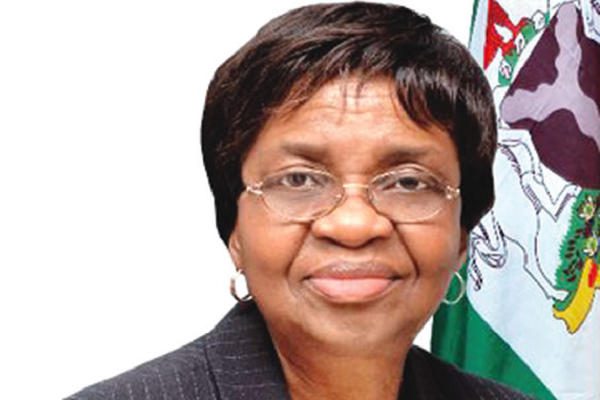By Matthew Denis
The National Agency for Food and Drug Administration and Control (NAFDAC) has urged the Medical and Health Workers Union of Nigeria (MHWUN) to suspend its ongoing strike and return to work. The agency warned that the strike poses risks to the health, safety, and security of Nigerians as critical regulatory functions are being disrupted.
In a statement made available to NewsDirect on Monday, NAFDAC’s Director-General, Prof. Mojisola Christianah Adeyeye, noted that MHWUN members began the industrial action on October 7, 2024, over allegations of noncompliance by NAFDAC management with their demands. Despite three meetings aimed at resolving these issues—held on October 5, 11, 18, and 19—she stated that the situation remains unresolved.
Prof. Adeyeye emphasised the significant public health responsibilities of NAFDAC and warned that the prolonged strike could jeopardise the health and safety of Nigerians. She pointed out that the cost of the strike to the agency is incalculable in terms of its reputation and revenue loss, which could impact the payment of productivity allowances in 2024 and other dues in 2025.
While the Senior Staff Association of Statutory Corporations and Government Owned Companies (SSASCGOC) has suspended its strike, MHWUN continues its action, which she described as detrimental.
She highlighted ongoing management efforts to address issues raised by MHWUN, including the expansion of vacancies to facilitate promotions for all candidates scoring 60 marks and above in the 2024 promotion exercise.
Although NAFDAC does not control vacancies—this responsibility lies with the Office of the Head of Civil Service of the Federation—management has written to the Head of Service through the Coordinating Minister of Health and Social Welfare (CMHSW) to advocate for more vacancies. The CMHSW has recommended this request.
On compliance with the 2022 agreement signed with NAFDAC’s Council and Management, Prof. Adeyeye addressed the union’s concerns regarding the gazetting of Hazard, Productivity, and Regulatory Allowances. She clarified that this matter has been partially addressed by the Secretary to the Government of the Federation through the advocacy of the Director-General, who has contacted the Minister of Finance to approve these allowances using user fees.
Regarding the proposed training school in Kaduna, the union was informed that establishing a physical school was deemed infeasible due to political and security issues in the area. However, an online training program has been running since October 2023, and management is considering revisiting the on-site training option.
On the topic of repatriation, burial expenses, and life insurance benefits, the DG stressed that these issues are addressed as needed, with a commitment to ensuring all outstanding claims are processed once the necessary names are submitted.
Prof. Adeyeye also addressed misconceptions about the disengagement allowance, stating that there was never an intention to halt these payments. She assured that any delays would be promptly addressed.
As for casual drivers, she noted that some were offered permanent employment during the recent recruitment exercise, and plans for ongoing recruitment to absorb more casual staff are in place.
Prof. Adeyeye reiterated the agency’s commitment to expanding its organisational structure. Since her tenure began in 2016, the number of directorates has increased from 13 to over 28, with four new directorates created recently. She affirmed that the agency will continue to expand its structure in alignment with its objectives.
She also acknowledged the overdue review of job-specific allowances, which falls under the purview of the National Salaries, Income and Wages Commission, and emphasised that management is actively pursuing this matter.
She expressed appreciation for the commitment of laboratory staff, noting that while financial challenges have arisen—specifically a government deduction of 50% of the agency’s Internally Generated Revenue (IGR) starting January 2024—the management remains open to reviewing laboratory allowances to ensure equitable payment across the board.
Prof. Adeyeye concluded by emphasising that transfers within the agency follow established policies, aiming to deploy officers who have spent extended periods in one location. Ongoing transfers have occurred across various zones, with careful consideration in specialised areas like laboratories to avoid disruptions.

